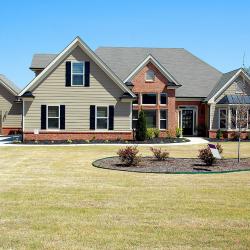How to Choose Sustainable Materials for Home Renovations
The push towards sustainability has become more than just a trend; it's a responsibility that many homeowners are taking seriously. By choosing sustainable materials for home renovations, we not only reduce our carbon footprint but also contribute positively to the environment. However, navigating the world of eco-friendly materials can be overwhelming. Here’s a guide to help you make informed choices that align with your sustainability goals.
Understanding Sustainable Materials
Before diving into the selection process, it's important to understand what makes a material sustainable. Sustainable materials are those that have minimal negative impact on the environment during their lifecycle—from production to use to disposal. They are typically renewable, recyclable, or resource-efficient, often sourced from responsibly managed resources.
Factors to Consider
-
Source and Production:
- Renewable Resources: Opt for materials that are renewable, like bamboo or cork. These materials replenish quickly and do not deplete natural resources.
- Local Sourcing: Choosing locally sourced materials reduces the carbon footprint associated with transportation and supports local economies.
- Eco-friendly Manufacturing: Consider the energy used in production. Manufacturers with green certifications often adhere to practices that minimize emissions and waste.
-
Durability and Longevity:
- Investing in durable materials might seem costly upfront, but it reduces the need for frequent replacements, saving resources and money in the long run. Look for materials with long life spans that maintain their quality over time.
-
Recyclability and Biodegradability:
- Choose materials that can be recycled or are biodegradable at the end of their life cycle. This ensures that they do not contribute to landfill waste.
- Metals like steel or aluminum are highly recyclable, while natural stone and wood have biodegradable properties.
-
Non-Toxicity:
- Indoor air quality is crucial for a healthy living environment. Select materials that do not emit volatile organic compounds (VOCs) or other pollutants. Look for certifications such as GREENGUARD or Blue Angel for assurance of non-toxic materials.
-
Energy Efficiency:
- Materials that enhance the energy efficiency of your home reduce reliance on non-renewable energy sources. This includes high-performance windows, insulation, and roofing materials that offer improved thermal performance.
Popular Sustainable Materials
-
Bamboo:
- Highly renewable due to its rapid growth, bamboo is a versatile option for flooring and cabinetry. It's durable, lightweight, and adds a natural aesthetic.
-
Reclaimed Wood:
- Using reclaimed wood salvaged from old structures gives new life to previously used materials, and its unique history contributes character to the home.
-
Cork:
- Harvested from the bark of cork oak trees without harming them, cork is a resilient, sound-absorbing material suitable for flooring.
-
Recycled Metal:
- Metal is infinitely recyclable without degradation. Utilizing recycled steel or aluminum reduces the environmental impact significantly compared to new production.
-
Recycled Glass:
- Often used in countertops and tiles, recycled glass offers a way to repurpose waste while providing an elegant, colorful finish.
Making the Right Choice
When planning your renovation, it's vital to not only consider the material itself but also engage with suppliers and contractors who understand and support sustainable practices. Perform thorough research and prioritize materials that have transparent sourcing and production processes. Certifications and labels can guide you in verifying sustainability claims.
Moreover, sustainable home renovations should blend functionality, aesthetics, and conscience. Align your choices with your home's style and your personal values.
Conclusion
Choosing sustainable materials for home renovations is a step towards a more eco-conscious lifestyle. It requires awareness, research, and a commitment to making choices that benefit not just your living space, but also the planet. By focusing on sustainability, you can create a home that's not only beautiful and comfortable but also leaves a positive impact on the world for future generations.






















